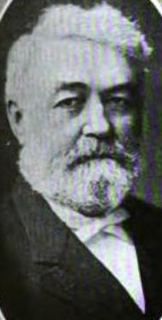A Quote by Maria Konnikova
All too often, when it comes to our own minds, we are surprisingly mindless. We sail on, blithely unaware of how much we are missing, of how little we grasp of our own thought process - and how much better we could be if only we'd taken the time to understand and to reflect.
Related Quotes
I am always struck by how difficult it is for people to see how much cruelty they are bringing not only upon animals but upon themselves and their loved ones and other people, how much we are screwing up the planet, how much we are hurting our own health, how hard it is to change all that, how eager people are to make a buck at everybody else's expense - all those things are discouraging.
By closely supervising our infants, by allowing them to do what they are capable of, by restraining ourselves from rescuing them too often, by waiting and waiting and waiting, by giving minimal help when they really need it, we allow our infants to learn and grow at their own time and in their own way. I believe that, no matter how much and how fast the world changes, a well-grounded, competent, and confident person is best equipped to adapt to it. This is our goal.
Historians of a generation ago were often shocked by the violence with which scientists rejected the history of their own subject as irrelevant; they could not understand how the members of any academic profession could fail to be intrigued by the study of their own cultural heritage. What these historians did not grasp was that scientists will welcome the history of science only when it has been demonstrated that this discipline can add to our understanding of science itself and thus help to produce, in some sense, better scientists.
We drink too much, smoke too much, spend too recklessly, laugh too little, drive too fast, get too angry, stay up too late, get up too tired, read too little, watch tv too much. We have multiplied our possessions but reduced our values. We talk too much, love too seldom, and hate too often. We've learned how to make a living but not a life. We've added years to life, not life to years.
If love could force my own thoughts over the edge of the world and out of time, then could I not see how even divine omnipotence might by the force of its own love be swayed down to the world? ...how it might, because it could know its own creatures only by compassion, put on mortal flesh, become a man, and walk among us, assume our nature and our fate, suffer our faults and our death?
I have an argument that to master any field, it's simple: it's a function of time. How much you devote yourself to the process, how much experience you get, how much you're willing to expand your limits, how willing you are to develop your own style. If you're willing to put 10,000 hours, something amazing is going to happen.
Many successful people have fear, along with doubts and worries. The difference is that those who know how to succeed also know how to take action despite these worries and fears. You too can learn how to master fear, by understanding that fear is in our own minds, and therefore under our own control.
I would argue that if you understand how the cells of the brain are organized into circuits, almost computational circuits if you will, and we see how information flows through those circuits and how it's transformed, we might have a much firmer grasp on why our brains make decisions the way that they do. If we get a handle on that, maybe we can overcome some of our limitations and at the very least we'll understand why we do what we do.
In my experience, writing a novel tends to create its own structure, its own demands, its own language, its own ending. So for much of the period in which I'm writing, I'm waiting to understand what's going to happen next, and how and where it's going to happen. In some cases, fairly early in the process, I do know how a book will end. But most of the time, not at all, and in this particular case, many questions are still unanswered, even though I've been working for months.






































